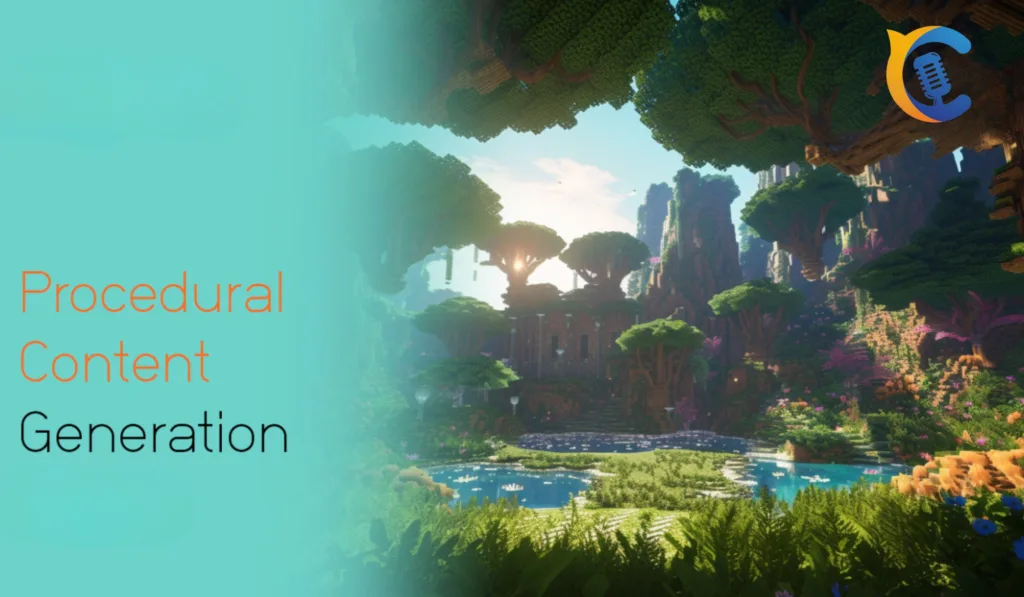Artificial Intelligence / AI / The Impact of AI in Entertainment and Gaming / AI in Entertainment and Gaming
Table of Contents
Introduction

The entertainment and gaming industries have been rapidly evolving, largely due to the integration of Artificial Intelligence (AI) technology. AI has introduced innovative techniques that enhance immersion and interaction, leading to more engaging experiences for users. From AI-driven characters to procedural content generation and AI-powered game design, these advancements are revolutionizing the way we consume entertainment and engage with video games.
AI-driven Characters: Embracing Realism and Immersion

One of the most significant advancements in entertainment and gaming is the emergence of AI-driven characters. Unlike traditional characters that were scripted and limited in their responses, AI-driven characters are dynamic and responsive. Thanks to machine learning algorithms, they can adapt and learn from user interactions, offering personalized experiences to players and viewers alike. These AI-driven characters now display emotions, learn from their mistakes, and even engage in conversations that closely mimic human interactions. As a result, storytelling in video games, movies, and virtual reality experiences has become more enriching, allowing users to develop deeper connections with the characters and become fully immersed in the narrative.
Procedural Content Generation: Limitless Creativity and Exploration

The concept of procedural content generation has brought about significant changes in the entertainment and gaming industries. Historically, creating game levels, landscapes, and environments required extensive manual effort, which limited the scale and diversity of experiences developers could offer. However, AI has revolutionized content creation processes by automating them.
AI algorithms can now generate vast and diverse virtual worlds, landscapes, and levels in real time, providing users with limitless possibilities for exploration and enjoyment. The dynamic nature of this content creation keeps the experience fresh and exciting for users while also reducing development time and costs, benefiting both developers and consumers alike.
AI-Powered Game Design: Enhancing Engagement and Creativity

AI’s influence in gaming extends beyond character behavior and content generation to include game design itself. AI-powered game design tools analyze player behavior, preferences, and feedback to create more engaging and challenging experiences. By analyzing large volumes of data, AI can fine-tune difficulty levels, suggest modifications to gameplay mechanics, and optimize in-game elements to ensure players remain captivated.
Additionally, AI algorithms can facilitate adaptive difficulty scaling, ensuring that games become more challenging as players become more skilled, providing a tailored experience for each user. This personalized approach enhances user satisfaction and encourages prolonged engagement with the game.
Ethical Considerations

While the advancements in AI for entertainment and gaming are commendable, ethical considerations need to be addressed. As AI-driven characters become more lifelike, developers must ensure that they avoid perpetuating harmful stereotypes and engaging in unethical behavior. Striking a balance between realism and responsible character development is essential to avoid unintended negative consequences.
Moreover, the use of AI in game design should not lead to exploitative monetization practices or manipulative player experiences. Developers must prioritize user well-being and maintain transparency when using AI algorithms to optimize game mechanics and difficulty levels.
Addressing AI in Gaming and Entertainment: The Road Ahead

As AI continues to make significant strides in the entertainment and gaming sectors, there are several key areas that developers and industry stakeholders should focus on to maximize its potential and address potential challenges:
- AI Ethics and User Privacy: As AI-driven characters become more human-like and interactive, it becomes crucial to prioritize ethical considerations. Developers must be cautious about the data collected from users and ensure that it is used responsibly. Respecting user privacy and obtaining informed consent for data usage are essential steps in fostering trust between developers and their audience.
- AI Diversity and Inclusivity: To avoid perpetuating biases, AI developers should be mindful of diversity and inclusivity when creating AI-driven characters and content. Representation matters, and diverse perspectives should be reflected in the characters and stories presented to users. By incorporating a wide range of voices, developers can create more authentic and relatable experiences.
- AI for Personalization: AI’s ability to analyze user data and behavior can be harnessed to deliver personalized experiences. By tailoring content and gameplay to individual preferences, developers can increase user engagement and satisfaction. However, striking a balance between personalization and user privacy is crucial to avoid crossing ethical boundaries.
- Collaborative AI Design: Encouraging collaboration between AI and human developers can lead to groundbreaking innovations. AI can assist developers in generating ideas, testing hypotheses, and optimizing game mechanics, while human creativity and judgment provide the necessary human touch. Embracing AI as a tool for empowerment rather than replacement will drive the industry forward.
- AI in Storytelling: As AI-driven characters become more integral to storytelling, developers should explore how AI can enhance narrative experiences. The use of AI to generate branching storylines based on player choices or to dynamically adapt the narrative in response to player behavior can elevate storytelling to new heights.
- Continued Research and Development: To fully harness the potential of AI in entertainment and gaming, continuous research and development are essential. AI technologies are rapidly evolving, and staying at the forefront of these advancements will allow developers to unlock new possibilities and deliver even more captivating experiences to users.
The Impact of AI in Entertainment and Gaming: Key facts
- AI-driven characters enhancing immersion in gaming.
- Procedural content generation revolutionizing game design.
- AI-powered game design leads to interactive experiences.
- Entertainment industry leveraging AI for innovative storytelling.
- AI algorithms optimizing in-game graphics and visuals.
- Virtual AI companions enhance player engagement.
- AI-enhanced sound design elevating gaming experiences.
- AI-driven NPCs adapting to player behavior in real-time.
- Deep learning enhancing facial animation in CGI movies.
- AI-based recommendation systems personalizing entertainment content.
Conclusion
AI’s integration into the entertainment and gaming industries has brought about a paradigm shift, enabling more immersive, interactive, and personalized experiences for users worldwide. From AI-driven characters that exhibit human-like behavior to procedural content generation that provides endless exploration possibilities, and AI-powered game design that enhances engagement, the impact of AI is undeniable.
As the industry moves forward, addressing ethical considerations and embracing collaboration between AI and human developers will be critical. Developers must prioritize user well-being, inclusivity, and privacy to ensure that AI in entertainment and gaming remains a force for good, delivering experiences that captivate and delight audiences while respecting their rights and values.
Read More: Artificial Intelligence / AI / The Impact of AI in Entertainment and Gaming / AI in Entertainment and Gaming


































